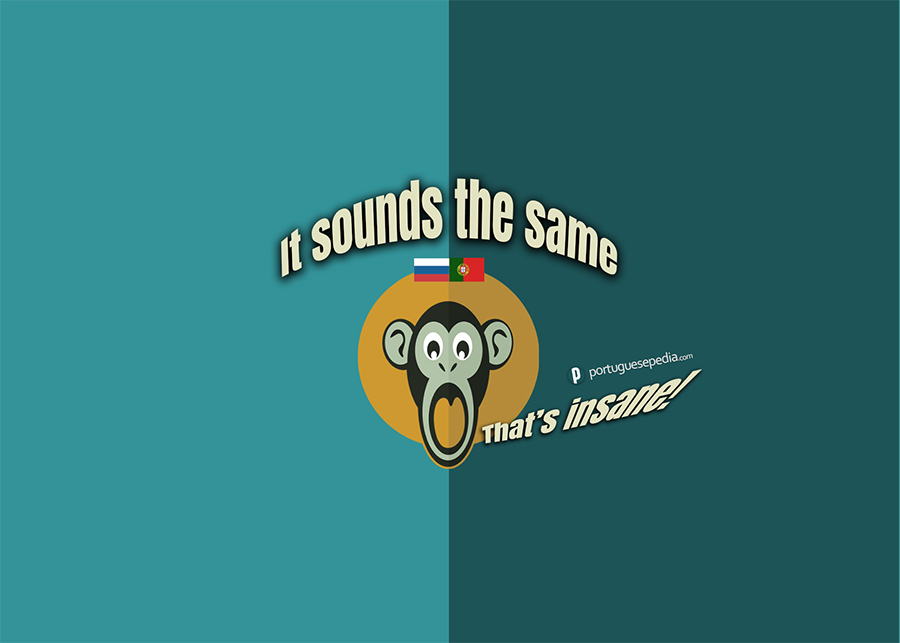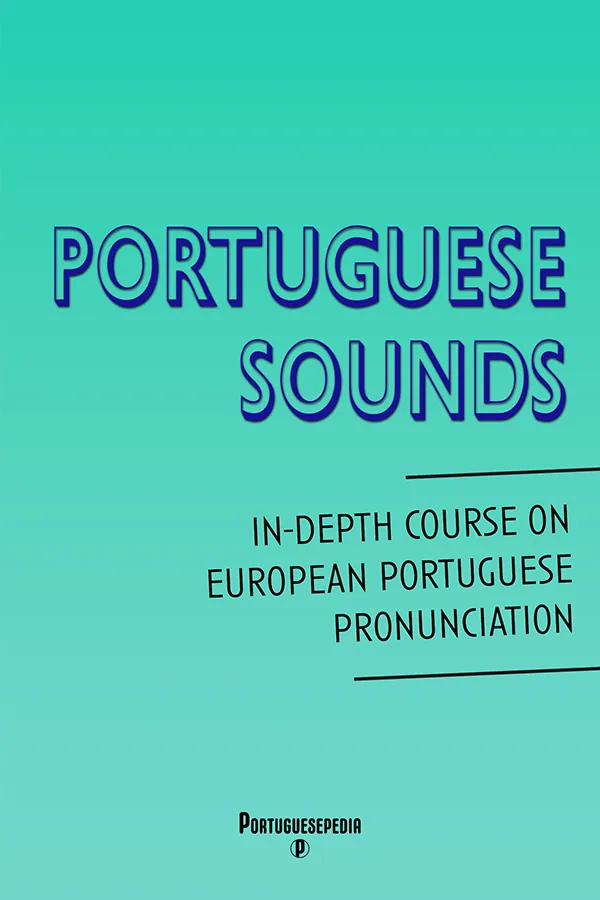
Here’s Why Portuguese Sounds like Russian
I often hear people saying that Portuguese sounds like Russian! What is so striking about that comment is that Portuguese and Russian are relatively distant languages – one is a Romance language, the other Slavic.
And so one can wonder. Why would people associate Portuguese with a Slavic language?
Here’s a plausible explanation as to why Portuguese and Russian sound alike:
Portuguese and Russian share common phonological features that make them sound superficially similar from a distance – both are stress-timed languages with a similar rhythm and accentuated vowel reduction. Additionally, both languages share a host of fricative and palatal consonant sounds.
It is not unprecedented that native Portuguese speakers think they hear her tongue being spoken at a distance when it is a Slavic language. Sure enough, it won’t take long for her to realize that.
This happened to me not long ago. I was at the airport walking toward the boarding gate when I heard familiar sounds uttered by a couple passing me by.
I quickly figured that it was not Portuguese. But still. For a split second, I believed the couple was talking my tongue.
Judging by all the hushing and palatal sounds, I reckon it was a Slavic language. Which one? I can’t be sure …
In what follows, we’ll get to the nitty-gritty of this phonological resemblance between Portuguese and Slavic languages. Let’s get started.
Note! This resemblance between Portuguese and Slavic languages mostly concerns the European variant of Portuguese. Learn more about how Brazilian and European standards compare: European vs. Brazilian Portuguese – How Different Are They Really?
Stress-timed languages
A common feature between Portuguese and Slavic languages is the fact that they are stress-timed languages.
In stress-timed languages, as opposed to syllable-timed languages, the time intervals between stressed syllables is fairly consistent. Thus, in order to fit into relatively fixed time intervals, unstressed syllables are shortened.
Often, syllable shortening results in vowel reduction, meaning that word syllables are pronounced less clearly and with closed vowel sounds.
In the following examples, stressed syllables are marked in bold whereas the reduced vowels are in red. Notice how the e-sounds are hardly recognizable, and how the o produces a reduced u-sound:
Quero beber sumo
Interessante
Also, since closed vowel sounds become hardly perceptible, vowel reduction leads, in practice, to consonant clusters:
trespassar [tɾɨʃpɐsˈaɾ]
questionar [kɨʃtjunˈaɾ]
despachar [dɨʃpɐʃˈaɾ]
Last but not least, stress-timed languages share a singular rhythm and cadence that our ears can pick up and recognize.
In sum, all these features – vowel reduction, consonant clustering, and a recognizable language cadence – result from a stress-timed accent that both Portuguese and Slavic languages share in common.
Reading tips! Being a stress-timed language, Portuguese has strong syllable and word-stress patterns – getting it right will positively affect your pronunciation a great deal. Learn more about it: Portuguese Word Stress and Accent Marks.
Other Romance Languages
So, why don’t the other Romance languages sound Slavic as well? That’s a good question.
The fact that the other Romance languages are much more syllable-timed than stress-timed can, at least partly, account for that.
Notice that I say, “much more than” because the language attribute in point is not binary – instead, different languages are placed along a continuum.
So, languages that are dominantly syllable-timed have all word syllables lasting approximately the same duration of time.
Spanish and Italian fall into this category and, therefore, don’t sound as Slavic as European Portuguese does.
In other words, these other Romance languages have a different rhythm and much less vowel reduction.
As a matter of fact, people often say that Spanish pronunciation is, in general, easier than Portuguese. Such an understanding aligns well with what has been said: more vowel reduction results in closed vowel sounds, which in turn makes the language, Portuguese in this case, less clearly pronounced.
Likewise, Brazilian Portuguese, which is also less stress-timed than its European sibling, is often said to be easier on the ear than the Portuguese spoken in Portugal. That might well be the case.
So far so good. But! There are more stress-timed languages out there, English being one of them. Have you ever heard people saying that Portuguese and English sound alike? I haven’t.
There must be more to this phonological resemblance between Portuguese and Slavic languages.
Learn more about how Portuguese and Spanish compare: How Similar Are Portuguese and Spanish?
Sibilant sounds
Sibilants result from consonants that produce hushing and hissing sounds. In English, you’ll find these sounds in words such as simple, zebra, sheet, measure, chat, and gentle.
These sounds are frequent in Portuguese, Russian, and other Slavic languages, particularly the postalveolar fricatives (as in she and usual ). While these fricative sounds are not the same in either language, they are pretty close.
In what follows, I will be referring to a few IPA symbols. IPA stands for International Phonetic Alphabet and each of its symbols stands for one, and only one, language sound.
Let’s take a closer look at the Portuguese spelling patterns that produce the above-mentioned fricative sounds.
The /ʃ/-sound
The /ʃ/-sound, a voiceless postalveolar consonant (as in she), is omnipresent in Portuguese. Let’s see why.
S-plural
For instance, any word ending with the letter s will render the /ʃ/-sound. And believe me, there are endless s-ending words in Portuguese, not least because Portuguese is an s-plural language.
By s-plural language I mean that the dominant pattern to form the plural is, just as in English, to add an s at the end of the noun:
casa → casas
house → houses
Moreover, in Portuguese the articles, adjectives, and pronouns will conform to the number. Thus, the s-plural will be added to them as well:
A minha casa → As minhas casas
My house → My houses
What’s more, even the plural forms of personal pronouns and verb tenses will take s-plural:
Eu tenho a minha casa → Nós temos as nossas casas
I have my house → We have our houses
Unquestionably, the s-plural makes the /ʃ/-sound pervasive in Portuguese. But there are even other spelling patterns feeding into it.
Other /ʃ/-sound spelling patterns
The /ʃ/-sound is rendered whenever s precedes a voiceless consonant, as in the words estou, espera, and escadas (I am, wait, and stairs respectively).
Also, words that end with a z, for instance, perspicaz (astute), will render this same fricative sound.
Furthermore, the digraph ch also produces the /ʃ/-sound, as in the words chapéu or acho (hat and I think respectively).
Although the letter x can stand for 4 different consonant sounds, it most commonly renders the /ʃ/-sound. For instance, all words starting with an x, as in xaile (shawl), do that.
Also, the /ʃ/-sound is produced whenever an x precedes another consonant, as in the word extremo (extreme). Additionally, an x in between vowels will, for the most part, render this sibilant, as in the word caixa (box).
estou
perspicaz
chapéu
xaile
extremo
The /ʒ/-sound
The /ʒ/-sound, also called voiced postalveolar (as in usual), is also prominent in the Portuguese. The difference between the /ʃ/-sound and /ʒ/-sound is that the latter is voiced – your vocal cords vibrate when producing it.
Several spelling patterns in Portuguese will render the /ʒ/-sound. The letter j, for instance, will always produce this sound, as in janela or queijo (window and cheese respectively).
You hear this sound whenever g is followed by a soft vowel – either e or i – as in gelado or girafa (ice cream and giraffe respectively).
Lastly, the /ʒ/-sound is produced when the letter s occurs before a voiced consonant, as in the words esbelto, esgoto, or asneira (slim, sewer, and blunder respectively).
janela
gelado
esbelto
Palatalized consonants
Another pronunciation feature Portuguese and Slavic languages have in common is their widespread palatalized consonants.
There are two palatalized consonant sounds in Portuguese: a palatal nasal denoted with the IPA symbol /ɲ/, and a palatal lateral approximant represented by the IPA symbol /ʎ/.
The /ɲ/-sound is always spelled in Portuguese with the nh digraph, as in the words ninho or lenha (nest and firewood respectively).
The /ʎ/-sound, on the other hand, is represented by the lh digraph, as in milho or palhaço (corn and clown respectively). This sound does not exist in English either, although the y-sound, as in yes or yeast, comes pretty close to it.
ninho
milho
The dark L
The dark L – represented by IPA’s /ɫ/ symbol – is a velarized L-sound that is thicker than the “normal” L-sound, approximately as in the English words minimal or malware.
The /ɫ/-sound is frequently heard in Russian and Polish as is in Portuguese, thus adding to the phonological resemblance between these languages.
Words that end with an L render the velarized l-sound, for example, carnaval (carnival). Also, whenever an L precedes another consonant, as in cálcio (calcium).
carnaval
cálcio
Nasal vowels and diphthongs
Portuguese stands out from other Romance languages because of its profusion of nasal sounds.
In addition to the other features discussed above, this one increases Portuguese’s phonetic resemblance with Polish.
Portuguese nasal vowels are produced whenever a vowel precedes an n or an m. For instance, a-e-i-o-u nasal vowel sounds are rendered in words such as andar (walk), embora (though), cinto (belt), comprar (buy), and cumprimento (length) respectively.
Also, the diacritical mark tilde (~) over the a-vowel renders a nasal sound. The words romã (pomegranate) and limão (lemon) produce a nasal vowel and diphthong respectively.
andar
romã
limão
Further reading! Learn more about Portuguese phonology in the following article: Portuguese Pronunciation: A Helpful Guide to Portuguese Basic Sounds and Spelling Patterns.

Olá! I'm Pedro and I'm your Portuguese teacher.
Ready to unlock the beauty of European Portuguese? Portuguesepedia is your key! This all-in-one platform provides a wealth of learning resources, from bite-sized video lessons to immersive idiomatic dips. Perfect your pronunciation and aural comprehension with listening drills and solidify your grammar with in-depth articles. Start your Portuguese journey today!
Share this article
Get my guide "Key Strategies to Learn Portuguese" for FREE.

























